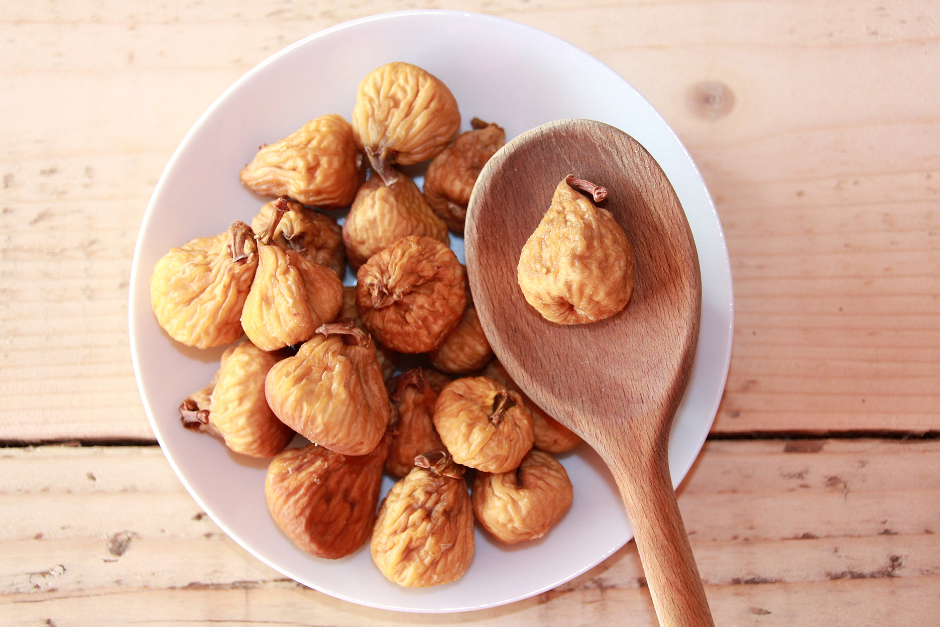
A few days ago, in the first part of this article, we told you about the importance of potassium intake for your health. Today we bring you the second and final part.
We all know that potassium is important for our health, but do we know how much we should consume every day? This time, we will focus on the recommended intake and list some of the main foods high in potassium, especially fruits :)
In many cases, most people don't think about this mineral until they are diagnosed with an electrolyte imbalance. As we told you in part one, potassium is essential for maintaining fluid balance, transmitting nerve impulses and contracting muscles. It also helps keep blood pressure under control and may reduce the risk of heart disease and stroke. As well as being found in many leafy green vegetables, potassium is present in other healthy foods such as figs, oranges, yoghurt, salmon and avocados. Below is a more detailed explanation of how much potassium we need each day and some tips for getting more potassium in our diet.
How much potassium should we consume each day?
What we eat has a direct impact on our overall health. Eating the right foods helps maintain the right level of potassium, which is essential for healthy cell function. By eating a balanced diet, we can help our bodies stay strong and prevent disease.
The amount of potassium needed depends on age and gender. According to the National Institutes of Health (NIH), part of the US Department of Health and Human Services, the average recommended daily amounts are:
- Children 1 to 3 years old: 2,000 mg.
- Children 4 to 8 years old: 2,300 mg
- Boys 9-13 years: 2,500 mg
- Girls 9-13 years: 2,300 mg
- Adolescents 14-18 years (boys): 3,000 mg
- Adolescents 14-18 years (girls): 2,300 mg
- Adults 19 years and older (men): 3,400 mg
- Adults over 19 (women): 2,600 mg
- Pregnant women: 2,900 mg
- Breast-feeding women: 2.800 mg
It is important for the general population to get their daily dose of potassium. As mentioned at the beginning, potassium is found in many foods. In addition to those mentioned in the first part of this article https, it is also found in green leafy vegetables. Dried fruits such as figs, prunes, apricots, sultanas, walnuts. Also Bananas, oranges. Meat, poultry and fish. Milk, yoghurt. Lentils, soybeans, sweet potatoes, and many others.
Is the banana the fruit that provides us with the most potassium?
For generations, in many cities around the world, the banana has been associated with the fruit that contains the most potassium. Surely if you remember your childhood, the words of your parents or grandparents will resonate when they insisted that you should eat at least one a day. In reality, there are fruits that provide even higher amounts.
Here is a list of the fruits that, according to the Spanish Nutrition Foundation (FEN), have the highest amount of potassium:
Coconut
It is the fruit richest in potassium according to the FEN (Spanish Nutrition Foundation), providing 405g in 100 grams, although it also has the highest amount of saturated fatty acids and its consumption is recommended in small portions. Another advantage of coconut is that it contains selenium and iron.
Avocado
Avocado is a very nutritious fruit that provides a lot of nutrients. A medium avocado contains 400 mg of potassium per 100 grams, which puts it in second place. It also helps us to maintain heart health and provides us with vitamin E.
Custard apple
Third place goes to a fruit that provides 382 mg of potassium and represents 13% of our recommended intake. Compared to other fruits, custard apple has a high amount of carbohydrates (20%) and is a source of vitamin C.
Banana
As you can see, it is not in the first place as it provides us with 350 mg of potassium. Bananas are rich sources of this essential nutrient. It also includes carbohydrates (20%). This fruit also provides 30% of the daily requirement of vitamin B6.
Figs
El Pajarero dried figs provide 200mg of potassium per 100 grams of fruit. In addition to calcium, iron and magnesium. It has all the essential amino acids and a large amount of fibre. It has small amounts of vitamin B6 and thiamine.
There are many fruits that also contain high doses of potassium such as grapefruit, melons, apricots, kiwis, peaches, among others.
Potassium is an important mineral that our body needs to function properly. There are many foods high in potassium that can help us achieve this goal. Next time you go shopping, be sure to include some of these potassium-rich foods on your shopping list.
By the way, what is your favourite potassium-rich food?
Ours, dried figs :)





